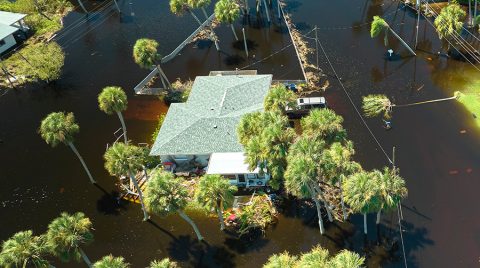-
Property & Casualty
Property & Casualty Overview

Property & Casualty
We offer a full range of reinsurance products and the expertise of our talented reinsurance team.
Trending Topics
Publication
Recycling of Large Lithium-Ion Batteries From a Property Insurance Perspective
Publication
Looks Like Inflation Is Sticking Around. What Do We Do Now? [Part 3 of 3]
Publication
The Future of Cryptography and the Rise of Quantum Computing
Publication
Personal Injury Compensation in Europe: An Updated Comparison Among Different Systems Within the European Market
Publication
How to Plan for Cat Claims - Before, During, and After an Event -
Life & Health
Life & Health Overview

Life & Health
We offer a full range of reinsurance products and the expertise of our talented reinsurance team.
Training & Education
Publication
The Future Impacts on Mortality [Video]
Publication
Beware of Demo Mode on Electrocardiogram Reports
Publication
Understanding Breast Cancer in Asia – Awareness and the Importance of Screening
Publication
Marginal Gains in the Medicare Supplement Market U.S. Industry Events
U.S. Industry Events Moving The Dial On Mental Health
Moving The Dial On Mental Health -
Knowledge Center
Knowledge Center Overview

Knowledge Center
Our global experts share their insights on insurance industry topics.
Trending Topics -
About Us
About Us OverviewCorporate Information

Meet Gen Re
Gen Re delivers reinsurance solutions to the Life & Health and Property & Casualty insurance industries.
- Careers Careers
Highlights of Our Iberia and Latin America Life Insurance Market Survey – The Impact of COVID-19

October 13, 2022
Andrea Hirzel
,
Ana Páez
Region: Iberian Countries and Latin America
English
Español
As we all know, insurers everywhere have updated their underwriting and claims processes due to the COVID‑19 pandemic – with many positive changes occurring from that experience. Gen Re recently conducted an insurance market survey for insurers throughout Iberia and Latin America so the participants could learn how companies here handled underwriting issues and what changes they’ve implemented since the start of the pandemic.
The survey goal was to obtain an overview of the situation in each market and identify the various forms of action, changes and decisions that insurers have implemented, as well as the difficulties and challenges in their underwriting process. The results covered issues related to insurability requirements, health declarations, underwriting, and temporary guidelines, among others. Participants also shared how their company adapted to rapidly changing scenarios during the pandemic – and still continue to adapt.
The survey involved a total of 130 respondents from 57 insurance companies doing business in Latin America (72%) and the Iberian Peninsula (28%).
Key findings from the survey:
- A clear trend was demonstrated where 71% of responding companies have incorporated questions related to COVID‑19 in the insurance application. This shows the impact that SARS‑CoV‑2, the virus that causes COVID‑19, has had on the underwriting process – which has led to the need to modify health declarations in order to be able to detect background information specifically related to this new pathology at the time of underwriting.
- 89% of the companies surveyed do not apply any special conditions to applicants not vaccinated against SARS‑CoV‑2. This may be due to domestic legislation in each country, discrimination issues, or also possible controversies that may arise due to the voluntary nature of vaccination, unequal access to vaccines, booster doses, protection of personal data, etc. It is noteworthy that the 11% that are applying special conditions to unvaccinated applicants correspond to the Latin American market where the impact of the pandemic has been much stronger.
- The mild course of COVID‑19 is the one most frequently stated in the applications within the surveyed companies, at 76%. This demonstrates that a mild course of the disease was the most common in the general population and for people applying for life insurance.
- Among the most common sequelae reported were respiratory (65%) and fatigue (55%). It is worth noting that the result of this survey question is in line with the results of several scientific studies on the sequelae of COVID‑19 that list respiratory complaints and fatigue as the most frequent post-infection complaints.
- More than two years after Gen Re’s temporary underwriting guidelines were established, we see that more than half of the respondents (56%) continue to apply a guideline that was implemented at the start of the pandemic – mostly related to Individual Life insurance: from limiting the excess premium and duration of the policy, to deferring the risk or applying exclusion clauses.
- The greatest difficulty faced by survey respondents with applying changes to their company underwriting guidelines occurred when the clients didn’t understand them, as well as the commercial pressure they would receive. Despite these difficulties, 79% of respondents believe it is necessary to continue applying the current guidelines. Some included comments that they appreciated the uncertainty and concern about Long COVID, important risk factors in the population, unequal and voluntary access to the vaccine, and persistent COVID‑19 transmission.
As the pandemic evolves, the death rate from COVID‑19 has declined, vaccination rates have increased, and there is greater scientific and medical understanding of the disease. Gen Re’s teams continue to make regular updates to our underwriting guidelines, and we are always eager to support our clients along their journey.
For more details and data on the survey, you can find the full report in Spanish language here.





